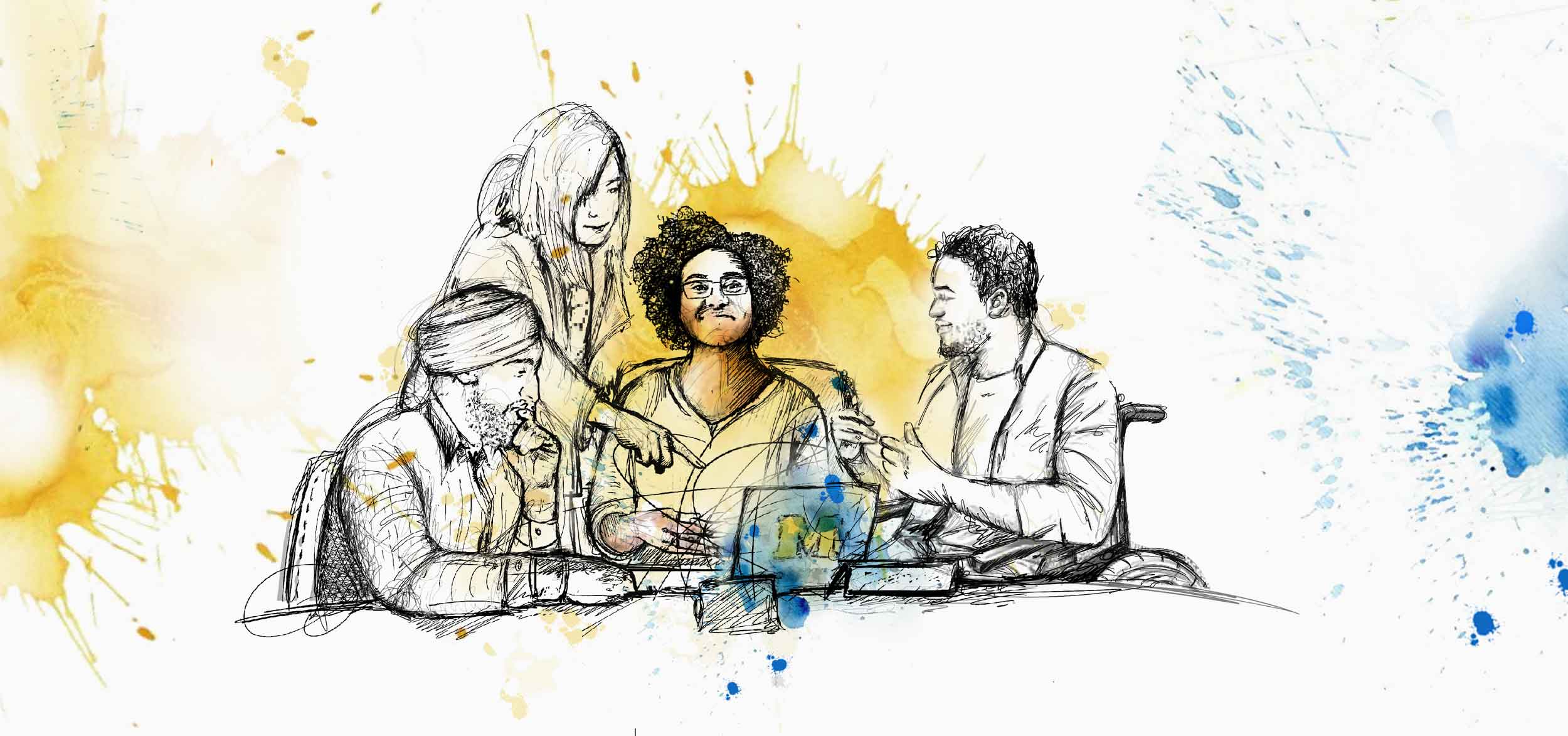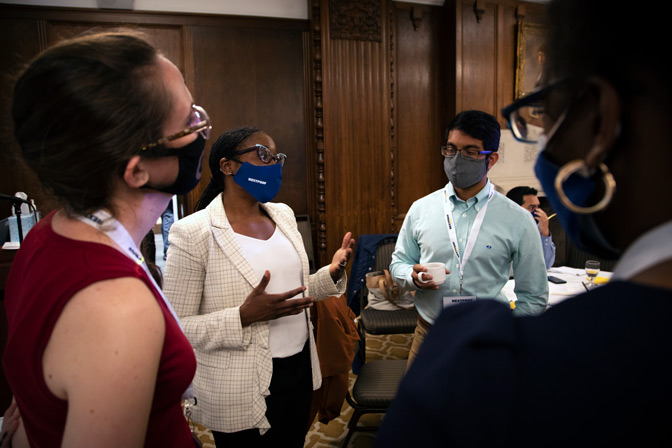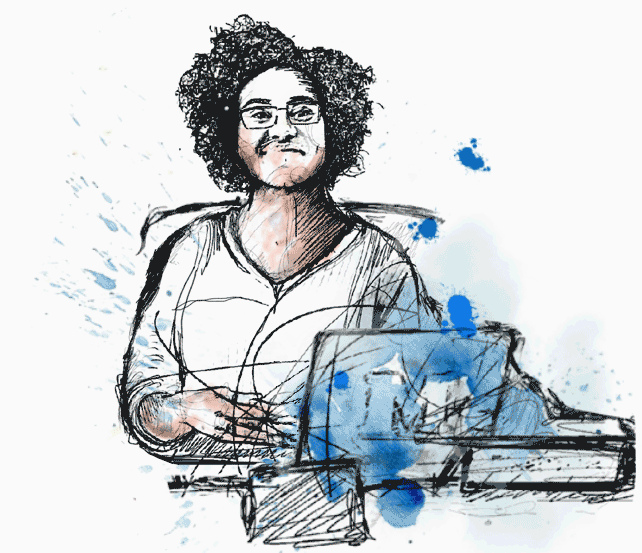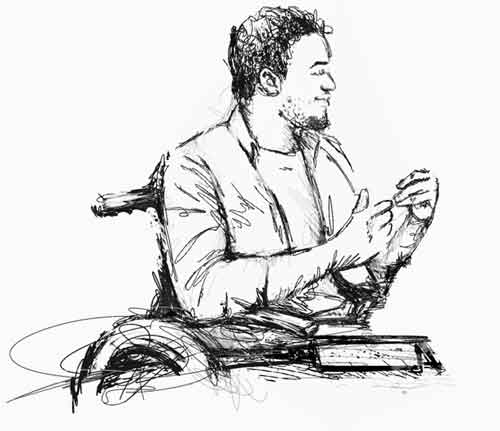
Diversifying academia
U-M-developed future faculty program is diversifying the next generation of academic leaders.
Through its NextProf program, Michigan Engineering has established a successful mechanism to diversify the engineering professoriate now and for the next generation—and it’s being joined by other top institutions as a result.
Created to bolster the number of underrepresented minority faculty, NextProf hosts graduate students and postdoctoral scholars from U-M and institutions around the country, connecting them with accomplished engineering professors. The national program’s annual workshops help attendees understand and navigate an academic career path and expand their professional support system.

Since offering the first NextProf Workshop in 2012, over 1,400 students have participated. Beginning in 2018, UC Berkeley, Georgia Tech, and UC San Diego have partnered with Michigan Engineering to expand NextProf enterprise. This multi-institutional momentum ups the ante on a long-term investment in diversifying talent in engineering academia, not just for U-M but for the whole field.
“Fifty percent of our NextProf Nexus alums have continued on academic career paths and 30% have secured faculty positions—and that’s very impressive,” says Lola Eniola-Adefeso, Associate Dean for Graduate & Professional Education, University Diversity and Social Transformation Professor of Chemical Engineering and NextProf co-founder. “Participants explore what it really means to be a faculty member. They have a chance to interact, ask questions and gain insight from esteemed faculty.”

Engineering is a field which, despite efforts going back decades, remains stubbornly white and male. The number of female faculty members is trending upward in recent years, but only slowly. And the percentage of people from underrepresented groups in faculty positions has been flat for roughly two decades.
Such a monolithic engineering culture has repercussions for society-at-large, as we’ve seen illustrated recently by facial recognition technologies that aren’t accurate for Black faces, for example. Increasing the diversity of academic engineering researchers and educators is seen as an essential step in advancing technologies that don’t exacerbate inequities.
“Diverse teams, if managed properly, yield superior outcomes,” said Alec D. Gallimore, NextProf co-founder and former Dean of Michigan Engineering. “By having a more diverse collection of professors, we believe we will have more diverse and, frankly, better overall engineering students who are equipped to understand problems from multiple perspectives and who seek to close societal gaps.”


Michigan Engineering’s people-first approach combines excellent engineering fundamentals, a convergence of disciplines, global worldviews and equity-centered values to help close societal gaps and elevate all people.